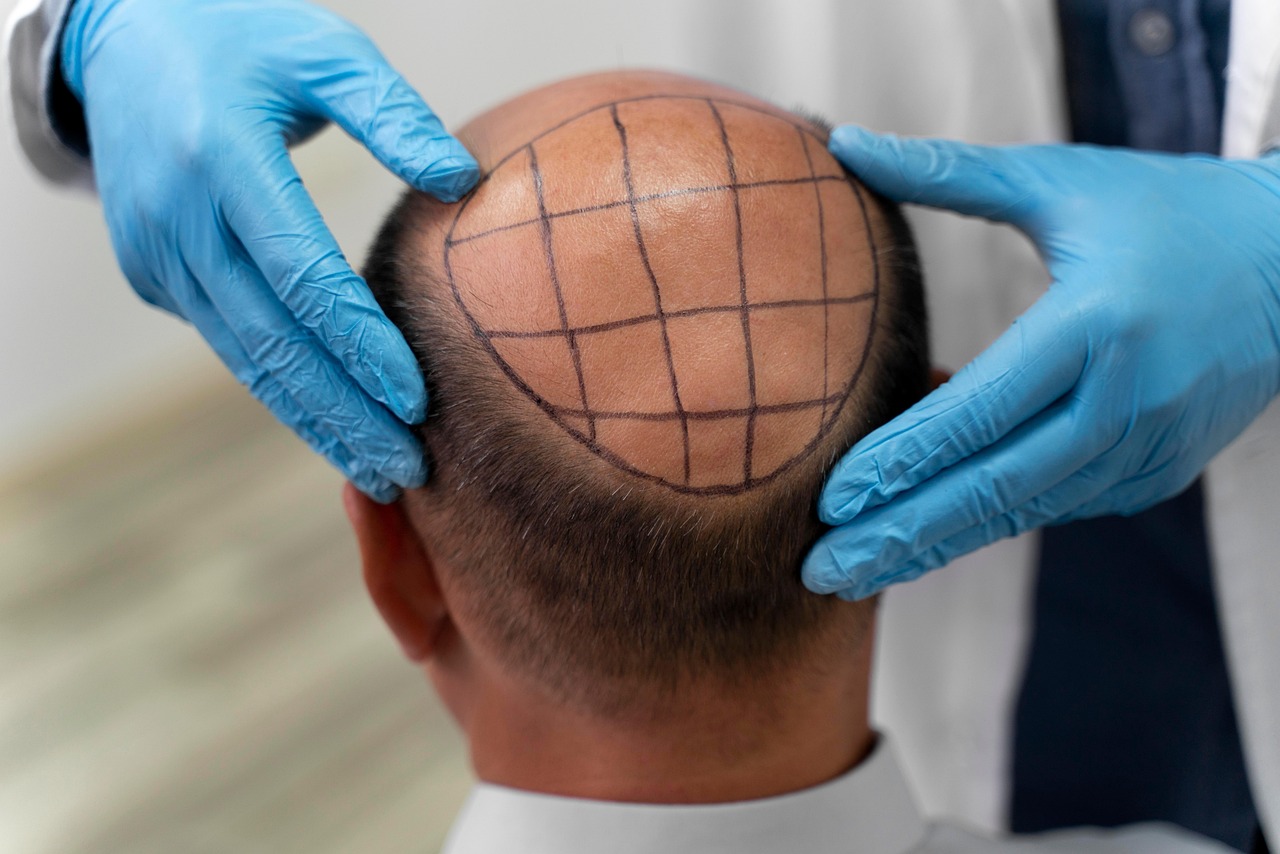Hair loss is a widespread issue that affects individuals of all ages, genders, and backgrounds. It can result from various factors, including genetics, hormonal imbalances, medical conditions, stress, or aging. Regardless of the cause, hair loss often leads to emotional distress, reduced confidence, and a negative impact on one’s self-image. While several temporary solutions are available—such as wigs, hairpieces, and topical treatments—many people now turn to hair transplants as a more permanent and effective solution. A hair transplant, a surgical technique that involves moving hair follicles from a donor area (typically the back or sides of the head) to a thinning or bald area, offers numerous advantages. These include improved appearance, enhanced self-confidence, natural-looking results, minimal maintenance, long-term cost-effectiveness, and psychological well-being. A great place to go to get one is an Albania hair transplant.
One of the most visible and immediate benefits of a hair transplant is the significant improvement in physical appearance. Hair frames the face, contributes to facial symmetry, and plays a crucial role in defining personal identity. People with thinning hair or bald patches often feel older or less attractive, which can impact both their personal and professional lives. A successful hair transplant restores the natural hairline and adds density to thinning areas, resulting in a more youthful and aesthetically pleasing look. The use of advanced techniques such as Follicular Unit Extraction (FUE) and Follicular Unit Transplantation (FUT) ensures that the transplanted hair blends seamlessly with existing hair, offering a natural and undetectable result.
Beyond the physical transformation, hair transplants have a profound impact on emotional well-being and self-confidence. Many individuals suffering from hair loss report feelings of embarrassment, social anxiety, and decreased self-esteem. These emotional burdens can affect relationships, work performance, and overall mental health. After undergoing a hair transplant, patients often experience a renewed sense of self-confidence and optimism. They feel more comfortable in social settings, more assertive in their interactions, and more motivated in their professional endeavors. This psychological boost can be life-changing, leading to improved mental health and a more positive outlook on life.
Another advantage of hair transplants is that they provide a natural, low-maintenance solution. Once the transplanted hair follicles have healed and begun to grow, they behave like normal hair. There is no need for special shampoos, serums, or styling routines. Patients can wash, cut, dye, and style their transplanted hair just like they would their natural hair. Unlike wigs or hairpieces, which require regular adjustments, cleaning, and can sometimes feel uncomfortable or insecure, transplanted hair offers freedom and ease of use. This makes the hair transplant procedure particularly appealing for individuals seeking a long-term, hassle-free solution.
Hair transplants are also known for their longevity and cost-effectiveness. Although the initial cost of the procedure may be relatively high, it is a one-time investment that can last a lifetime. In contrast, temporary treatments such as hair fibers, topical medications like minoxidil, or oral medications like finasteride require ongoing usage and expenditure. Over time, these recurring costs can add up, making them more expensive than a single transplant procedure. Additionally, these alternatives may not provide consistent results or may stop working if discontinued. A hair transplant, on the other hand, offers permanent results when performed correctly, making it a wise financial decision for many individuals.
Furthermore, hair transplants are generally safe and minimally invasive. Technological advancements have made the procedure more precise and less painful, with faster recovery times and minimal scarring. Most patients can return to their normal activities within a few days after the surgery. The risk of complications is low, especially when the procedure is performed by a qualified and experienced surgeon. The growing popularity of hair transplants has also led to more clinics offering high-quality care, making the treatment more accessible than ever before.
In addition to these benefits, hair transplants also help reduce the psychological stress associated with hair loss. Studies have shown that people with visible hair loss often experience depression, anxiety, and social withdrawal. These mental health challenges can be as debilitating as the physical symptoms themselves. By addressing the root cause—literally and figuratively—a hair transplant helps individuals regain control over their appearance and mental well-being. This sense of empowerment can be crucial for leading a happy and fulfilling life.
In conclusion, the benefits of a hair transplant extend far beyond simple cosmetic enhancement. From restoring a youthful appearance and boosting self-confidence to offering a low-maintenance and cost-effective solution, hair transplants provide a holistic answer to the challenges of hair loss. With ongoing improvements in surgical techniques and an increasing number of satisfied patients, it is clear that hair transplants are not just a trend, but a reliable and transformative option for those seeking to reclaim their hair and their confidence. As more people learn about the advantages, it is likely that hair transplants will continue to grow in popularity as a trusted solution to a common problem.


